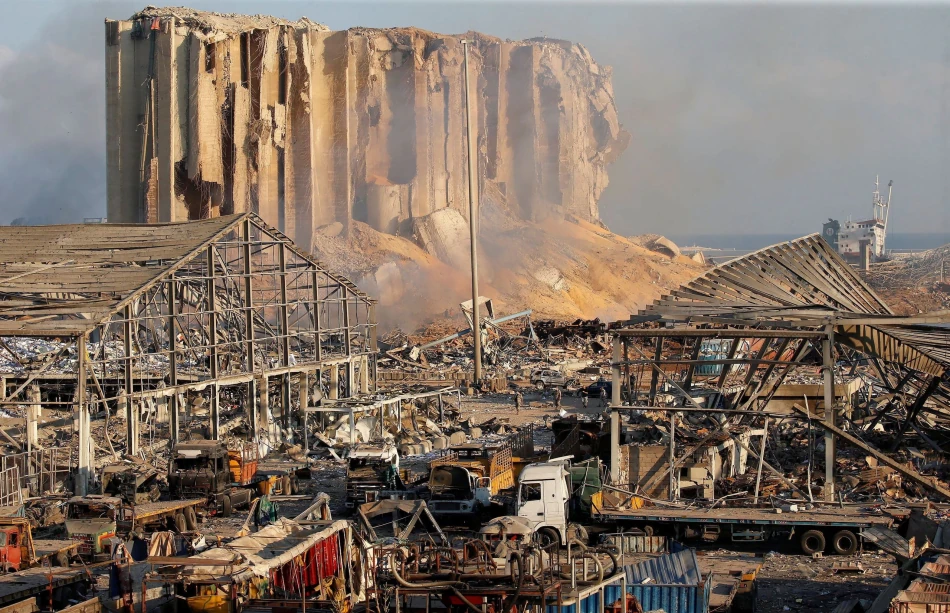
Lebanon Declares National Mourning on August 4th After Devastating Explosion
Lebanon Marks Fifth Anniversary of Beirut Port Blast as Justice Remains Elusive
Lebanon has declared Monday, August 4, 2025, a national day of mourning to commemorate the fifth anniversary of the devastating Beirut port explosion. The announcement underscores the enduring trauma of one of the world's most powerful non-nuclear explosions, which killed 200 people and wounded 6,000 others while destroying half of the Lebanese capital—yet accountability for the disaster remains frustratingly out of reach.
Official Mourning Declared Across Lebanon
The Lebanese Council of Ministers announced the official mourning period in a statement referencing Decree No. 15215 from September 27, 2005, and its amendments, particularly Decree No. 8007 from July 23, 2021. The government ordered flags to be flown at half-staff across all public administrations, institutions, and municipalities.
Television and radio stations have been instructed to modify their regular programming to reflect the somber nature of the anniversary, demonstrating solidarity with the families of victims and survivors who continue to bear the physical and emotional scars of the tragedy.
A Catastrophe That Shook the World
The August 4, 2020 explosion at Beirut's port ranks among the ten most powerful explosions in recorded history. The blast, caused by approximately 2,750 tons of improperly stored ammonium nitrate, created a mushroom cloud visible from space and generated seismic waves equivalent to a 3.3-magnitude earthquake.
Beyond the immediate human toll, the explosion inflicted an estimated $15 billion in damage to Lebanon's already crumbling infrastructure. Entire neighborhoods were reduced to rubble, historic buildings dating back centuries were destroyed, and the country's main grain silos—critical for food security—were obliterated.
Economic Devastation in Context
The timing of the disaster proved particularly cruel for Lebanon, which was already experiencing its worst economic crisis since the 1975-1990 civil war. The port handled roughly 60% of Lebanon's imports, and its destruction further strangled supply chains in a country heavily dependent on foreign goods. The blast accelerated Lebanon's currency collapse, with the Lebanese pound losing over 90% of its value since 2019.
The Unfinished Quest for Justice
Five years later, the investigation into the explosion remains stalled, reflecting Lebanon's broader institutional paralysis. The probe has been suspended multiple times due to political interference, with senior officials refusing to appear for questioning and filing legal challenges against the investigating judge.
This judicial impasse has become emblematic of Lebanon's culture of impunity, where political elites routinely escape accountability. Families of victims have increasingly turned to international courts and advocacy groups, arguing that Lebanon's sectarian political system is structurally incapable of delivering justice.
International Pressure Mounts
The European Union and several Western nations have imposed sanctions on Lebanese officials deemed responsible for obstructing the investigation. France, Lebanon's former colonial power, has led diplomatic efforts to maintain pressure for accountability, though concrete results remain limited.
A Nation Still Searching for Answers
As Lebanon marks this fifth anniversary, the country faces a stark reality: the explosion that was supposed to serve as a catalyst for systemic change has instead highlighted the resilience of a dysfunctional political order. The disaster's anniversary serves not just as a moment of remembrance, but as a reminder of Lebanon's ongoing struggle between the demand for accountability and the persistence of entrenched power structures.
For the families of the 200 victims and thousands of survivors, the annual mourning declaration offers official recognition of their loss—but falls far short of the justice they continue to seek.
Most Viewed News

 Sara Khaled
Sara Khaled






